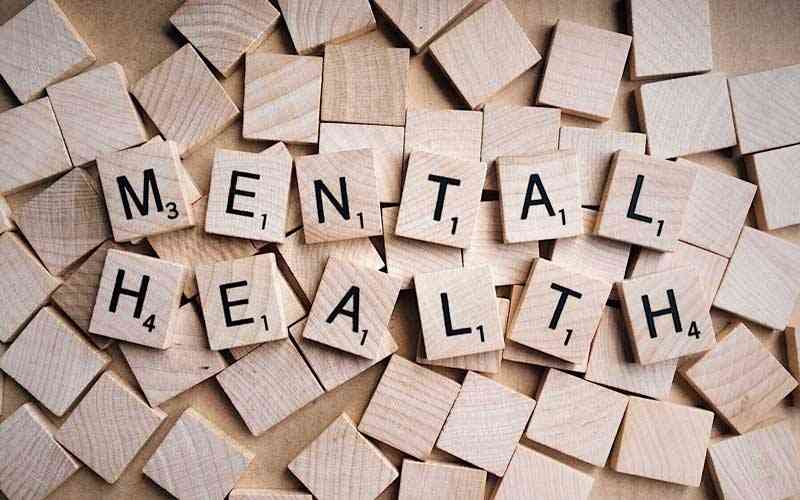
Mental health is a state of well-being in which an individual realises his or her own potential, can cope with the normal stresses of life, can work productively and fruitfully, and is able to make a meaningful contribution to their community.
Mental health is a critical component of individual, family, community and national wellbeing and prosperity.
Men are three times as likely to die from suicide compared to women, men are twice as likely to develop an alcohol and substance use problem compared to women and six times as likely to die from alcohol-related problems, and one in 10 young men in Zimbabwe reports having experienced sexual abuse in childhood.
Despite all these facts, more women are screened for and diagnosed with mental health problems disproportionately increasing women’s potential access to appropriate care compared to men.
It is critical that we better understand, acknowledge and seriously address the factors affecting mental health of men and improve access to care for those who need it.
Common mental health problems faced by men and factors that contribute to poor mental health in men
Men face similar mental health challenges as women but may experience the symptoms differently and this can affect if and how they seek for help and access appropriate care.
Men are often expected to be strong, tough, resilient and self-reliant.
- Mavhunga puts DeMbare into Chibuku quarterfinals
- Bulls to charge into Zimbabwe gold stocks
- Ndiraya concerned as goals dry up
- Letters: How solar power is transforming African farms
Keep Reading
This leaves little room for the healthy expression of emotions and for emotional vulnerability which is a key component of maintaining mental wellbeing.
This can increase the risk of developing mental health challenges.
Other factors that can contribute to poor mental health in men include biological, psychological, social and spiritual risk factors.
Biological risk factors including genetics and family predisposition to certain mental health challenges can increase the risk of a man developing mental health problems.
Alcohol use problems in particular can be passed on from father to son however, the environment in which the son is raised can mitigate against this risk.
Psychological risk factors include a low sense of self-worth, a feeling of helplessness and hopelessness especially in harsh environments.
Social risk factors include a poor support system, relationship/marriage difficulties, poor quality friendships, work related problems, unemployment and poverty.
Exposure to traumatic events is also a significant risk factor for mental health problems on men.
Spiritual risk factors include a lack of purpose and meaning in life, a lack of a strong vision, goals to strive for and dreams for oneself can also lead to increased risk of mental health problems.
Common challenges men can face include stress and burnout; alcohol and substance use problems; depression and anxiety.
Stress: Men are often faced with tremendous pressure to provide for and protect their families even when they are struggling to do so.
If not handled appropriately, this pressure can lead to high levels of stress.
Biologically, men have a more intense fight/fight response to stress compared to women and are at greater risk of aggressive behaviour, self-medication with alcohol and substance use and hypertension when over stressed.
Burnout: Men are also prone to burnout especially when overstressed.
Men are sadly often measured by what they do rather than who they are.
Men are often judged by their ability to provide and to be seen as a success financially and this can lead to a toxic relationship between a man and his work.
Work ideally should be something that engages us cognitively and emotionally but should also be balanced with other aspects of life.
Men, in an attempt to remain the strong provider, may over work, take on too many responsibilities or do work that is not meaningful or rewarding mentally or emotionally just to make sure they put food on the table.
Alcohol and substance use problems: While alcohol and substance use can be mental health problems on their own, misuse of substances can be an outward expression of deeper problems like depression or anxiety.
Alcohol and substances can sometimes be used to ‘self- medicate’ the emotional pain, relationship challenges and work related stress.
Alcohol and substances can be used to try and build up bravado or self-esteem or to overcome anxiety or escape from hopelessness and helplessness but can sadly lead to a vicious cycle of addiction.
Depression and anxiety: men can also struggle with depression and anxiety but this may be experienced as frustration, irritability, anger and aggression; high risk behaviour such as high speed reckless driving and risky sexual behaviour, emotional detachment and numbing as well as overworking.
What can we do as a society and as a nation to address mental health challenges in men?
In order to address the mental health needs of men it is critical that we:
Reimagine mental health care for men: This will involve acknowledging the unique experiences men have when faced with mental health challenges and ensuring that screening for mental health problems is done appropriately and that there is access to effective care.
This will involve addressing social stigma surrounding the issue of men seeking for mental health care and health worker bias that can happen because men are not usually thought to have common mental health problems and are less likely to be screened for mental health problems routinely.
Peer support groups are also a critical component of how mental health care could be delivered to men in an appropriate, acceptable way.
Addressing mental health needs of boys: today’s boys are tomorrow’s men and it is important to raise awareness about mental wellbeing and common mental health problems in young men and boys.
Mantra’s of boys don’t cry and men don’t show emotion must become a thing of the past if we are to ensure an emotionally aware and emotionally healthy next generation of men.
School interventions to teach mental health and wellbeing and to address the scourge of bullying particularly in boy’s schools can also help protect our nation’s boys.
Workplace mental health initiatives: are potential opportunities for raising awareness and for early identification of problems are initiating appropriate care for men.
This will not only benefit employees but has been shown to help increase productivity for the organization.
Supporting and promoting engaged fatherhood: Fatherhood is a critical component of men’s mental wellbeing.
It is important that we help those who are fathers to play a more engaged and active role in their children’s lives.
This has been shown to have a positive impact on the development and emotional wellbeing of children and of fathers themselves.
If you think that you or a man that you know may be struggling with a mental health problem, please contact your nearest health care provider and get help.
* Dr. Chido Rwafa-Madzvamutse is a consultant psychiatrist. Feedback: Whatsapp: +263714987729









